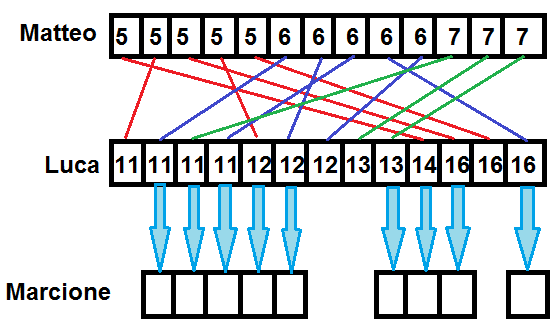When you write:
I should think that you have Klinghardt wrong, since that he also told me that the first ür-gospel didn't reflect in no way marcionite teology at all. But now you are saying that Klinghardt suspects the ür-gospel be marcionite, really? Have you read something about this scholar's view?Klinghardt's Marcionite priority requires and unpublished version of Marcion's gospel. I differ from Dr. Klinghardt in that I do not presume Marcionite theological priority, and thus the unpublished ür-gospel need not be Marcionite.
I'm assuming that for ''gospel'' here you assume ''a oral or written biography of Jesus'' and not the original myth of those ''Christian apostles of the I CE'' (or those the consensus call so).
I know well that you have always suspended judgment about anything came before the publishing activity of Marcion. Under the more'' conservative'' frame, you would assume that:The acceptance of inconsistencies, and even clearly different, yet still for the most part heretical positions within the Apostolikon, tells me that the Marcionite author worked with existing material to frame his books, and not every inconsistency was accounted for or corrected.
1) First came the proto-Catholics, then Marcion and/or some of its precursor heretics began to publish the first documents, editing other already existing (made by proto-Catholics)
while under the more radical scenario, you would assume that:
2) what Marcion and some of its precursors manipulated and published were texts perhaps even more ''heretical'' (that is ''not Jewish'') than we attribute to Marcion.
is that what you would assume, even at the level of mere abstract possibility? I find it frustrating and fascinating together that your view of origins is more elusive than Proteus.
I'm inclined more and more that the first ur-gospel, in absolute, was 'heretical' resp. to Judaism.
For example, consider what Jesus says in Luke 23:71 :
Then said they all, Art thou then the Son of God? And he said unto them, Ye say that I am.
The logic would be this:
1) the pharisees accuse Jesus to be an impostor (sedicent Messiah).
2) but, since that the Impostor par-excellence is the Demiurg (because he believes himself the Supreme God),
3) then Jesus accuses the pharisees to identify Jesus with the (Son of) Demiurg.
The Pharisees thus become complicit of the Demiurge in his corrupting work: as the Demiurge had deceived himself and humanity preening himself for the Supreme God (when in fact there was another God superior to him), so the servants of the Demiurge, in particular the Sanhedrin, continue to perpetrate the ''Great Deception'' of the Demiurge, by this time accusing Jesus himself - even the Son of Stranger God! - to impersonate fraudulently for the Son of the Demiurge!

